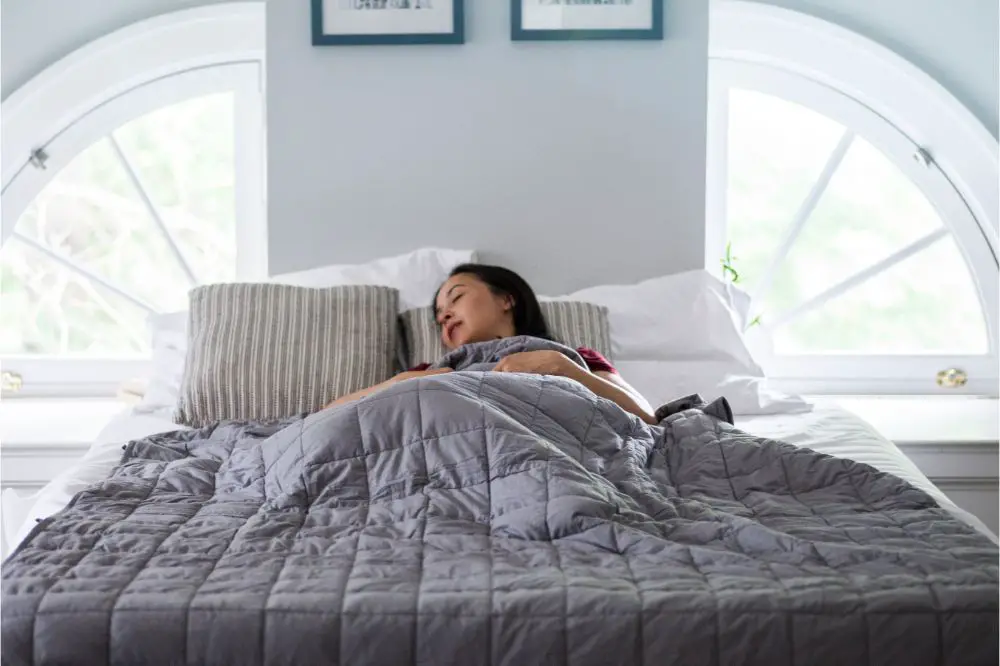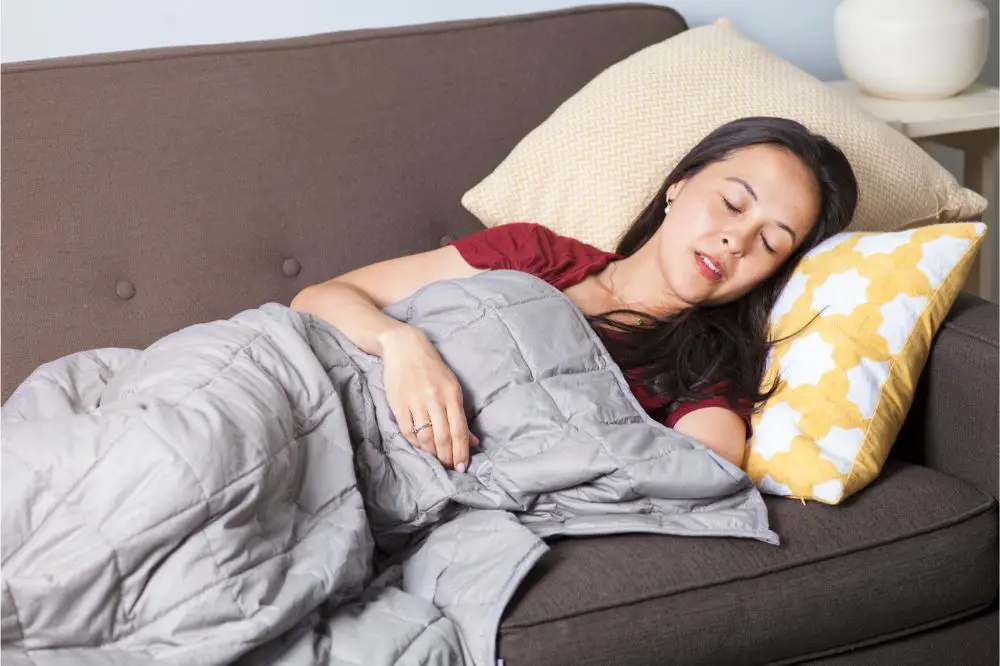As a BetterHelp affiliate, we receive compensation from BetterHelp if you purchase products or services through the links provided
Weighted Blankets: Controversial or a Necessity
Almost everyone loves the feel of a tight, warm hug to make us feel calm and safe. Imagine that same feeling when lying in bed or relaxing on the couch. A weighted blanket can give you a sense of security and relaxation using deep pressure touch therapy.
Many articles and papers have been written about the effects of a weighted blanket, both positive and negative, leaving everyone wondering if a weighted blanket is worth the hype and a necessity or is just a controversial way for these companies to make money?
The Hype Around Weighted Blankets
Many studies on the effects of using deep pressure stimulation to treat the symptoms of illnesses such as autism, anxiety, and depression have been conducted in the last few years. In addition, weighted blankets have become popular as people seek alternative methods to treat anxiety disorders and get a good night’s sleep while “being hugged.”
Made from various fabrics or yarns, they are weighted down with ball bearings, plastic pellets, and plastic balls of various weights.
The Benefits of Weighted Blankets
While health experts worldwide are on the fence on the benefits of weighted blankets, some promote them as an alternative therapy to treat illnesses and disorders associated with depression, anxiety, autism, and even ADHD.
Weighted blankets are said to benefit the user in the following ways.
A sense of comfort and safety
As mentioned before, studies have shown the efficacy of using a weighted blanket to leave the user feeling calm and secure in their bed or relaxation space.
Reduce stress and anxiety
Just like a warm, tight hug can leave us feeling all fuzzy, calm, and relaxed, so too can a weighted blanket give that same feeling.
Treat nervous system disorders
A good quality weighted blanket is weighted so that there is an even amount of pressure over the whole body. This deep pressure creates a comforting feeling that is especially effective in fighting our bodies’ flight or fight response activated by our parasympathetic nervous system.

A better night’s sleep
People who suffer from depression, anxiety, and even high-stress jobs can benefit from using a weighted blanket. This is because a weighted blanket boosts serotonin, stimulates melatonin production, and reduces cortisol. These are all hormones that affect our ability to sleep.
Looking at studies conducted in the last few years on the effectiveness of a weighted blanket, there were some surprising results.
A Swedish study in 2020 on 120 people on the effectiveness of a weighted blanket showed that 61 of the people given a weighted blanket reported better sleep, less insomnia, and a reduction in their depression and anxiety in just four weeks.
In 2020, a researcher in Florida tested a weighted blanket on the patients of a psychiatric facility. There was a total of 122 participants, of which only 61 opted to use a weighted blanket to help them sleep and reduce their anxiety. These 61 reported lower anxiety levels than those who did not opt for a weighted blanket.
The most recent study on how effective weighted blankets are was conducted again by a Swedish researcher on adults and children who had either Autism or ADHD. Forty-eight of the adults and 37 of the children reported that using the weighted blanket helped them fall asleep quickly and helped them to stay asleep.
Are Weighted Blankets Considered Safe?
There is much controversy surrounding using a weighted blanket to reduce stress, increase calm and peace, and get a better night’s sleep. How safe is it to use a weighted blanket, and what are the risks associated with them?
The most common risk of using a weighted blanket is suffocation. Using a weighted blanket requires that the user has the strength to lift or take the blanket off themselves in the case of respiratory distress. There have been a few other cases noted in which a weighted blanket should not be used. Patients with respiratory or circulatory issues should avoid using a weighted blanket. It is also not recommended for those who suffer from low blood pressure, diabetes, or claustrophobia.
To use a weighted blanket safely, do not use it on a child younger than two years of age. Ensure that the blanket is made specifically for the person who will use it. A weighted blanket should not weigh more than 10% of the user’s body weight.
Conclusion
Before you use a weighted blanket, speak to your doctor to ensure that you can safely use the blanket. Read the instructions carefully and always take the necessary precautions. While there are no specific studies to state that weighted blankets are 100% safe or should be advised against, it is up to personal preference.
Choose a good quality weighted blanket that meets all the safety criteria and choose a breathable fabric. The choice is yours to give in to the hype or avoid the controversy.
- 7 Ideas to Help You Relax and Unwind on a Family Vacation - April 27, 2025
- How Having Cybersecurity Protection Helps You Relax - April 25, 2025
- 8 Reasons Why Spending Time Outside Calms You Down - April 25, 2025
This site contains affiliate links to products. We will receive a commission for purchases made through these links.



